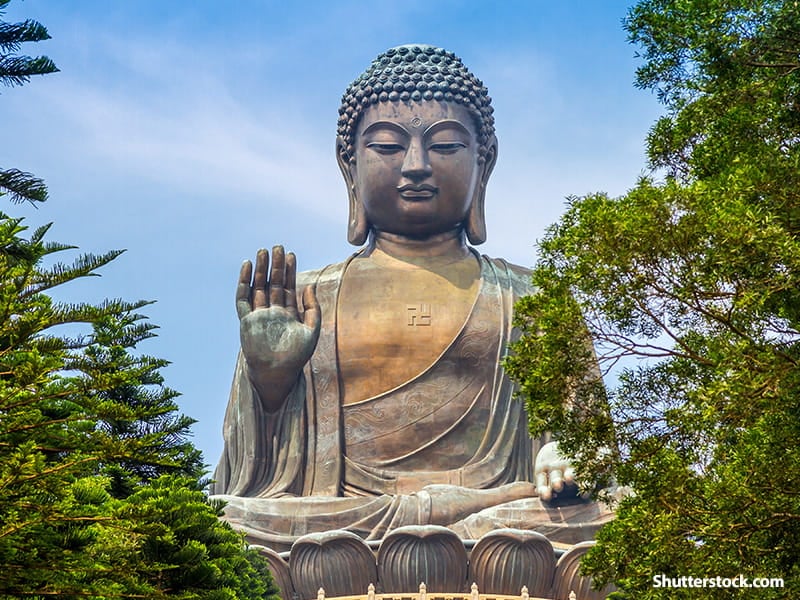For Lama Surya Das, a Buddhist teacher and Beliefnet columnist who was co-organizer of this and the previous conferences in India, "It was heartening to feel the growth and maturity of our teachers' assembly, from East and West, including monastic and lay, women and men, scholars and practitioners. It bodes well for the future health and longevity of Buddhist teachings and practice in the Western world."
For a day and a half of the conference, which was hosted by Spirit Rock, the San Francisco Zen Center and members of a group called the Network of Western Buddhist teachers, His Holiness the Dalai Lama joined the open session, listening to presentations and offering comments that were teachings in themselves. When asked whether he thought teachers in the West are using the best methods of dharma instruction with their students, he responded with a statement that suggested some teachers were worrying too much about their appearance as dharma transmitters and not enough about their intentions: "I am not promoting Buddhism," he said by way of example. "I am promoting human values." He went on to stress that if teachers examine their motivation and find it is pure, then the teaching will be authentic. "If I look at how my effort affects other people, I get doubtful," he said. "But if I look at my motivation and see that it's sincere, I can be happy. If I try my best and fail, it doesn't matter."
In a later session, the Dalai Lama emphasized the importance of sticking with the most fundamental teachings of Buddhism. Leave esoteric practices and Tantra for a time when the foundation has been well laid, he cautioned--"Tantra is risky unless you have a firm ground of practice. Then it is useful." He suggested that dharma teachers instead revert to the texts of the original Indian masters, and that they focus on offering the Buddha's basic teachings, starting with the Four Noble Truths, the Noble Eight-fold Path, renunciation, bodhicitta (or awakened mind), and ending with the six paramitas (or virtues of a bodhisattva). "When you get to the paramitas, stay there for a long time!"
"It's no accident that the Buddha appeared to his mother in a dream as a white elephant," Tibetan Buddhist scholar, author, and former monk Robert Thurman joked on one panel. "We should cherish our white elephants! We need them now more than we ever have." Nuns--among them an American nun named Sister Thanasanti who was ordained in the lineage of the Thai forest master Ajaan Cha--stressed the difficulties for women in monastic orders, as they cannot receive full bhikkhuni (nun's) ordination and their status is lower than that of monks according to the vinaya or Buddhist monastic code.
On the subject of diversity in Western practice centers, Santa Fe-based vipassana teacher Ralph Steele spoke movingly of the pervasive racism of American culture that extends into the meditation room. Jeffrey Kitzes, abbot of the Empty Gate Zen Center in Berkeley and a dharma heir of the Korean master Seung Sahn, invited the assembly to look around the room to gauge the ethnic mix of the group, and by extension, of Western Buddhism. Save a handful of Asian and Asian-American teachers, and Steele, who is African-American, all were Caucasian.
Among other passionately discussed items on the agenda were the mainstreaming of the dharma and the place of dharma on the internet; the aging of the senior generation of Western teachers and how their mantel will be passed; the role of socially engaged Buddhism in the West; dharma teachers and money; and developing dialogue between different traditions.
At the end of the conference, some organizers recommended that an elected council of elders could advise teachers and practice centers on such things as scandal in the sangha and might help resolve some of the questions posed during the week. The conference closed with prayers and blessings offered by Maha Gosananda, the supreme patriarch of Cambodian Buddhism who braved execution at the hands of the Khmer Rouge to establish Buddhist temples in Cambodian refugee camps. His remarkable presence and gentle commentary throughout the week were like a quiet blessing on the meeting and his final metta, or lovingkindness prayers, were a fitting seal on a remarkable gathering.

